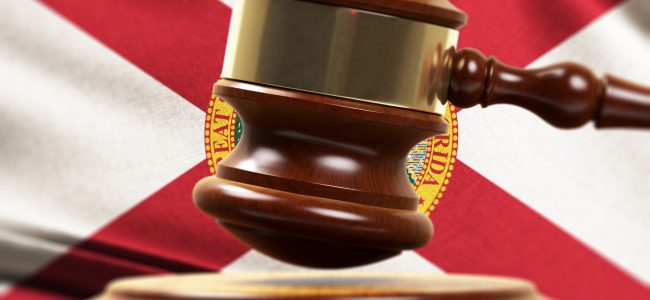BlogLine
The prior panel rule: Uniformity or chaos
8/21/25

Can a three-judge appellate panel overrule or “recede from” prior-panel precedent? In Florida, it likely depends on which district court hears the appeal.
The prior-panel rule, or horizontal stare decisis, dictates that a three-judge appellate panel is bound by the prior-panel precedent unless it is overturned or abrogated by the district court sitting en banc, the Florida Supreme Court or the United States Supreme Court. Wanless v. State, 271 So. 3d 1219, 1223 (Fla. 1st DCA 2019). When the Florida Supreme Court modified Florida Rule of Appellate Procedure 9.331 (en banc procedures) in 1982, it cautioned the district courts that “a three-judge panel of a district court should not overrule or recede from a prior panel’s ruling on an identical point of the law.” In re Rule 9.331, Determination of Causes by a Dist. Court of Appeal En Banc, Florida Rules of Appellate Procedure, 416 So. 2d 1127, 1128 (Fla. 1982) (but declining to prohibit panels from overruling panels by court rule). The en banc procedures were developed to avoid “intra-district conflict” and to “provide litigants with a clear statement of the law within any given district.” Id.
As a general matter, federal circuit courts follow this principle of jurisprudence under the moniker of the “law of the circuit” doctrine, which is “one of the building blocks on which the federal judicial system rests.” San Juan Cable LLC v. Puerto Rico Tel. Co., Inc., 612 F.3d 25, 33 (1st Cir. 2010). The Eleventh Circuit recently dubbed the rule “strict.” TL90108 LLC v. Ford, No. 21-10456, 2025 WL 2304512, at *1 (11th Cir. Aug. 11, 2025).
Last month, the Third DCA reaffirmed its adherence to the prior-panel rule. Santana-Ozuna v. State, No. 3D23-1818, 2025 WL 1943927, at *1, 2 n.2 (Fla. 3d DCA July 16, 2025). The Second, Fourth and Fifth DCAs also follow the rule. State v. Crose, 378 So. 3d 1217, 1243 (Fla. 2d DCA 2024) (en banc) (calling the rule “well-settled”); Fox v. Fox, 262 So. 3d 789, 792 (Fla. 4th DCA 2018) (en banc); Williams v. Salt Springs Resort Ass’n, Inc., 298 So. 3d 1255, 1256 (Fla. 5th DCA 2020) (en banc). The Sixth DCA has not decided the issue.
The First DCA’s caselaw on the rule is ambiguous. As noted above, the court in Wanless followed the rule. But on the same day Wanless was handed down, the court issued its opinion in Daniel v. State, 271 So. 3d 1214 (Fla. 1st DCA 2019). There, the court held that the decision later in time (later is greater) controls. Id. at 1215 n.3. Yet, in 2018, the court explained that the rule required subsequent panels to follow prior-panel precedent. Scott v. Trotti, 283 So. 3d 340, 345 (Fla. 1st DCA 2018).
The state of the law remains in flux at the First DCA. One judge recently called the rule “a fallacy, a figment, a chimera.” Normandy Ins. Co. v. Bouayad, 372 So. 3d 671, 694–99 (Fla. 1st DCA 2023) (Tanenbaum, J., concurring). Another has noted that “[f]ailing to adhere to prior panel precedent without en banc consideration opens the possibility for chaos and uncertainty to reign”. BAM Trading Servs., Inc. v. Off. of Fin. Regul., 395 So. 3d 687, 694 (Fla. 1st DCA 2024) (Bilbery, J., concurring).
Bam Trading illustrates the court’s conflicting views on the rule. Judge Tanenbaum stated, “[t]he only meaning to be read into the court’s decision to consider this case sitting en banc is its clear approval of the holding originally set out by the panel majority.” Id. at 694. This indicates his view that panels are not bound by prior panels. Yet Judge Bilbery explained that he “fully concur[red] in the majority opinion and in the decision to rehear the case en banc to unambiguously recede from erroneous precedent.” Id. at 693. So whether the First DCA adheres to the rule is up in the air.
What does this mean in practice? Judge Bilbery suggests that, in the event of intra-district conflict, trial courts should follow the decision later in time. Rogers v. State, 296 So. 3d 500, 519 (Fla. 1st DCA 2020) (Bilbery, J., concurring). But trial courts are also faced with the fact that the First DCA has held that a subsequent panel may not overrule a prior panel. See Wanless and Trotti.
If appearing before the First DCA, counsel should understand that whether a panel will adhere to prior-panel precedent likely depends on which judges are on the panel.
For information on how we can assist you with appeals and complex motions, please contact Robert Scavone Jr. at robert.scavone@fmglaw.com.
Information conveyed herein should not be construed as legal advice or represent any specific or binding policy or procedure of any organization. Information provided is for educational purposes only. These materials are written in a general format and not intended to be advice applicable to any specific circumstance. Legal opinions may vary when based on subtle factual distinctions. All rights reserved. No part of this presentation may be reproduced, published or posted without the written permission of Freeman Mathis & Gary, LLP.
Share
Save Print
